Religious Education
Intent
As a Church of England school, the teaching of Religious Education at Little Waltham Primary School is central to our curriculum. The 1988 Education Act states that ‘Religious Education has equal standing in relation to core subjects of the National Curriculum in that it is compulsory for all registered pupils’.
Through our Religious Education Curriculum, we aim for pupils to:
- acquire and develop knowledge, understanding and respect for the beliefs and practices of Christianity and the other principal religions represented in Great Britain;
- reflect on beliefs, values and traditions in order to understand their influence on individuals, communities, and culture;
- make informed responses to religious and moral issues;
- express curiosity about and learn to grapple with fundamental questions of life;
- develop and deepen their own belief, values and sense of self worth;
- make their own spiritual journey.
Implementation
Our school curriculum for RE meets the requirements of the 1988 Education Reform Act (ERA). The ERA stipulates that religious education is compulsory for all children, including those in the reception class who are less than five years old. The ERA allows parents and carers to withdraw their child from religious education classes if they so wish, although only after they have given written notice to the school governors.
At Little Waltham Primary School, the educational process is rooted in the living faith and Christian values of our community. This goes beyond the ethos of the school to affect the planning and teaching in every curriculum area. Religious education is not just an academic subject, but, lying at the very heart of the curriculum, has an important role in reflecting and conveying the distinctively Christian character of the school.
Our RE curriculum overview has been based on the Norfolk Syllabus, supported by resources from Understanding Christianity and RE today. These units of work cover each of the 3 disciplines, Theology, Human and Social Sciences and Philosophy. The title of each unit of work is a question to promote enquiry based learning. Where other religions are woven in, it would be expected that the majority of the time will be spent on Christianity and exploring the Understanding Christianity Resource question. We ensure that the topics studied in RE build on prior learning. We offer opportunities for children of all abilities to develop their skills and knowledge in each unit, as well as encouraging pupils to discuss their ideas and extend their understanding of difficult and challenging concepts or questions.
We ensure that the progression planned into the scheme of work offers the children an increasing challenge as they move through the school. Our RE curriculum provides opportunities for pupils to learn about religion and from religion.
Our planning is based on the expectation that the following minimum times be given to religious education:
- Key Stage 1: 36 hours per year
- Key Stage 2: 45 hours per year
At Little Waltham all pupils receive a weekly RE lesson and participate in termly faith days where they take part in activities designed to further enrich their understanding of a religious tradition or festival.
Impact
Religious Education at Little Waltham Primary School develops pupils’
- knowledge and understanding of, and their ability to respond to, Christianity, other principal world religions, other religious traditions and world views;
- understanding and respect for different religions, beliefs, values and traditions (including ethical life choices), through exploring issues within and between faiths;
- understanding of the influence of faith and belief on individuals, societies, communities and cultures;
- skills of enquiry and response through the use of religious vocabulary, questioning and empathy;
- skills of reflection, expression, application , analysis and evaluation of beliefs, values and practices, and the communication of personal responses to these.
Religious Education at Little Waltham Primary School encourages pupils to:
- consider their own thoughts and opinions on the challenging questions of the meaning and purpose of life, beliefs about God, their own self and the nature of reality, issues of right and wrong and what it means to be human;
- understand the influence of religion on individuals, families, communities and cultures
- learn from different religions, beliefs, values and traditions while exploring questions of meaning and their own beliefs;
- learn about religious and ethical teaching, enabling them to make reasoned and informed responses to religious, moral and social issues;
- develop their sense of identity and belonging in the world, preparing them for life as citizens in a multi-cultural global society;
- develop respect for and sensitivity to others, in particular those whose faiths and beliefs are different from their own.
Religious Education at Little Waltham offers:
- opportunities for all pupils for personal reflection and spiritual development;
- preparedness for life in a multi-cultural global society where they can exist in harmony with others and live life to the full.
Religious Education at Little Waltham enhances pupils’…
- awareness and understanding of religions and beliefs, teachings, practices and forms of expression;
- ability to reflect on, consider, analyse, interpret and evaluate issues of truth, belief, faith and ethics and to communicate their responses.






